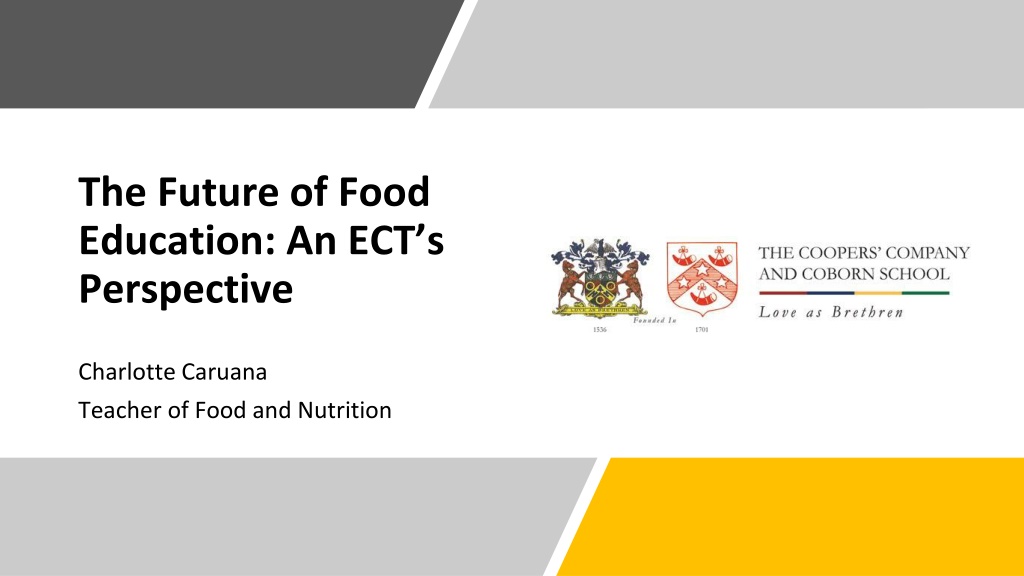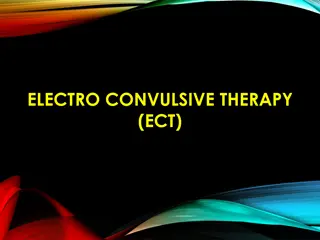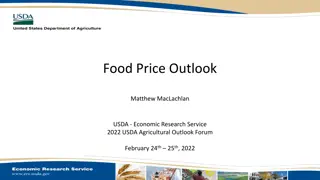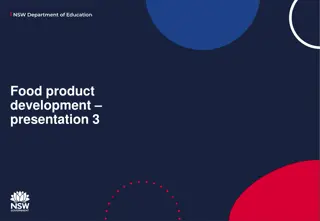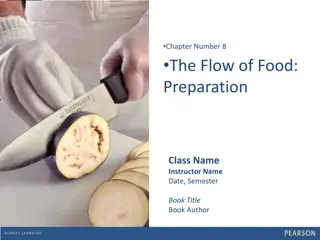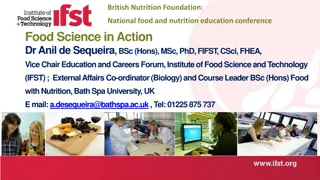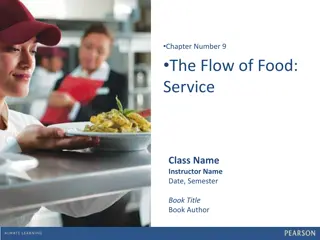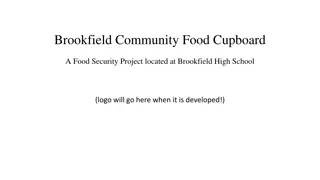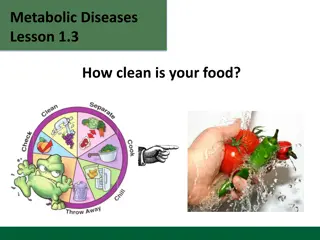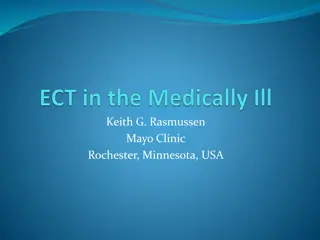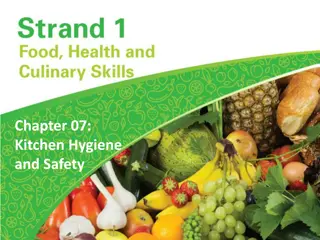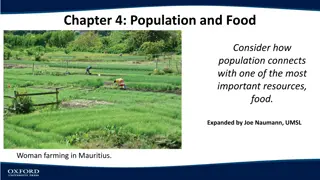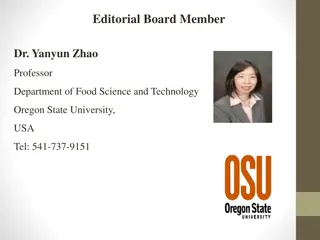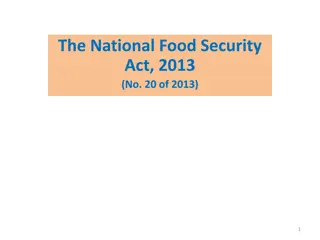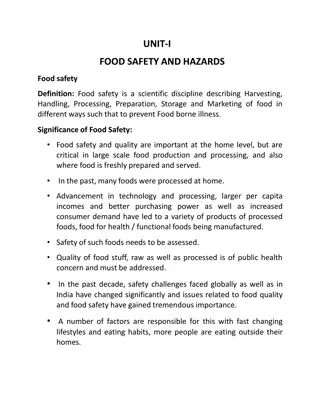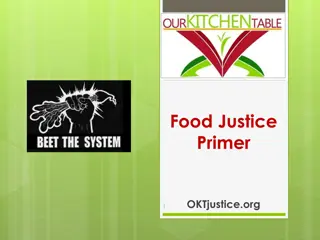The Future of Food Education: An ECT's Perspective
Charlotte Caruana, a first-year ECT of Food and Nutrition, shares insights on food education in 2021 and forecasts its evolution in the next five years. Student voices highlight the importance of interactive learning, independence development, and diverse culinary experiences. The vision includes cultural diversity, sustainability, mental health awareness, and modernized curriculum approaches.
Download Presentation

Please find below an Image/Link to download the presentation.
The content on the website is provided AS IS for your information and personal use only. It may not be sold, licensed, or shared on other websites without obtaining consent from the author. Download presentation by click this link. If you encounter any issues during the download, it is possible that the publisher has removed the file from their server.
E N D
Presentation Transcript
The Future of Food Education: An ECT s Perspective Charlotte Caruana Teacher of Food and Nutrition
My Background Current role as a first year ECT of Food and Nutrition at The Coopers Company and Coborn School Previous role within schools aimed at supporting children and young people with SEMH and special educational needs Small department Large emphasis on practical cooking skills and promoting independence Provide weekly Food & Nutrition education for all KS3 students, Year 7 on split carousel with D&T KS4 success with BTEC Home Cooking Skills Generally high attaining students with high aspirations
Food Education in 2021 Interesting Creative Vast Engaging Essential Extensive Appealing My View of Food Education in 2021 Fun Skilful Undervalued Relatable to our Everyday Lives Cross-Curricular Challenging Scientific Thought Provoking
Student Voice What would some CCCS students like to see more of within Food education? Interactive Learning: Games, taste testing, off site visits, guest speakers/chefs Developing Independence: Meal planning, shopping, costing recipes, feeding my family Advanced skills progression opportunities Experimental cooking Links between physical & mental health and food Student input in planning the practical curriculum Learning about other cultures and traditional dishes Speciality lessons/ food trends: Afternoon Tea
Food Education in 5 Years Accessible Trips Culturally Diverse Plant based recipes Unsafe Dieting and Mental Health Health and Sustainability Inclusivity SEN Environmental awareness Modernisation Dietary Choices Physical Education Training Opportunities Student Input Financially Explicit Links Broader Links to the Curriculum PSHE Extra Curricular: Gardening, Clubs, Guest Speakers Careers Higher Education opportunities Government Funding Science
Moving Forward What can I do to make this a reality? Using student voice to help plan schemes of work Work to create an accepting, modern and diverse curriculum Work with other departments to promote cross curricular links Continue to offer extra curricular activities Organise trips, visits and school guests Practical skills progression opportunities for the more ambitious students Create an inclusive kitchen which uses visuals and support strategies consistently for SEND students Campaign for schools to provide all students with the same ingredients to create a fair and equal classroom Demonstrate clear career pathways within my teaching of the curriculum Take part in CPD opportunities which in turn improve my skills as a teacher
